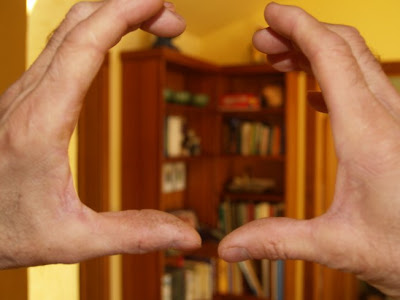Heidegger had some very strong concerns about our relationship with technology. He had been a grossly mistaken supporter of the Nazis in Germany and lived long enough for the world to enter the nuclear age and protracted cold war in which mutual assured destruction was a matter of worldwide concern. He lived most of the time in a summer retreat at the edge of the Black Forest in Germany from which he wondered, would technology be a "saving force," or would it lead to our destruction? Perhaps the question should be continuously monitored with each technological object we choose to incorporate in our lives, asking, "What does this reveal to me, or of me?" To find hopes for technology Heidegger looked back to an earlier time.
There was once a time when it was not technology alone that bore the name technē. Once that revealing that brings forth truth into the beautiful was also called technē. Once there was a time when bringing-forth of the true into the beautiful was called technē. And the poiēsis of fine art was also called technē. In Greece, at the outset of the destining of the West, the arts soared to the supreme height of the revealing granted them. They brought the presence of the gods, brought the dialogue of divine and human destinings, to radiance. And art was simply called technē. It was a single manifold revealing. It was pious, promos, i.e., yielding to the holding-sway and the safekeeping of truth.You know that there are many wonderful things about having a woodshop. It is actually better, I think, than a retreat at the edge of the Black Forest. If you want to understand life, and being, and to address what you are learning most completely, whether through discourse or in object form there is a thing that happens when your own hands do the enframing. We can talk about technē, poiēsis and art, but it is far more interesting to witness it's growth in your own hands.

 You can see from the photos above, that the hands also are involved in "enframing," and revealing, not just what is but what might yet become. They help us to understand scale and weight, help us to focus on distinct areas for examination, and thus serve in the same ways that technology has served and that Heidegger discussed, but did so first, with far less risk, and also help in the design of future things. As one Clear Spring School mother observed, in some classes, students learn about the world. In woodshop, students learn about themselves.
You can see from the photos above, that the hands also are involved in "enframing," and revealing, not just what is but what might yet become. They help us to understand scale and weight, help us to focus on distinct areas for examination, and thus serve in the same ways that technology has served and that Heidegger discussed, but did so first, with far less risk, and also help in the design of future things. As one Clear Spring School mother observed, in some classes, students learn about the world. In woodshop, students learn about themselves.
No comments:
Post a Comment